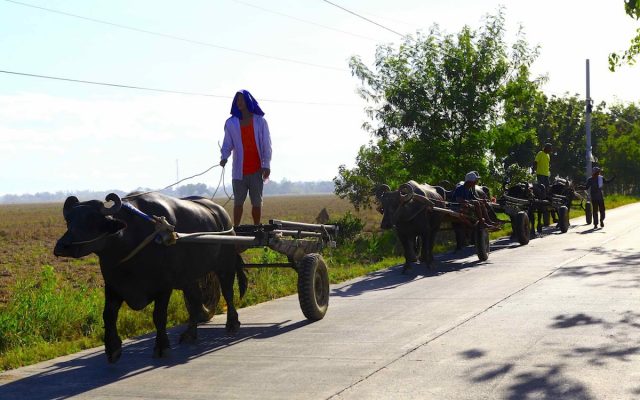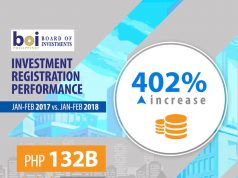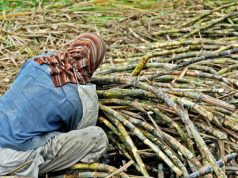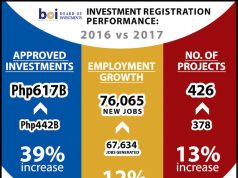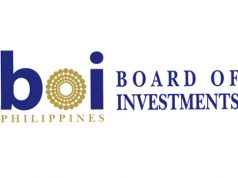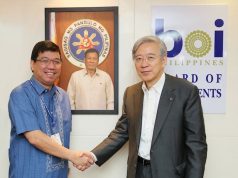MANILA – “Can companies end poverty, promote responsible consumption and production, and still make a profit?”
This is the question raised by the Philippine Board of Investments (BOI) and the United Nations Development Programme’s (UNDP) Istanbul International Center for Private Sector in Development in their new study, “Business + The Philippines”, released on Monday.
The short answer is yes.
In fact, elaborated the two institutions, companies have been doing so through philanthropic giving, responsible business practices, and corporate social responsibility programs.
It is inclusive business, however, that is “proving effective, sustainable, and feasible while addressing the unfulfilled gaps of poverty,” said UNDP Resident Representative in the Philippines Ola Almgren.
“At its heart is the integration of the base of the economic pyramid, those that often get left behind, into commpanies’ value chains, to ensure both commercial success and social impact,” he explained.
For example, Jollibee Food Corporation initiated its Farmer Entrepreneurship Program (FEP) in 2008 together with Catholic Relief Services and the National Livelihood Development Corporation.
FEP builds farmers’ capacity through vocational training and improving their management skills and productivity. It has since trained 900 farmers from over 15 provinces, and they directly supply vegetables to 15 institutional markets, the study said.
UNDP and BOI also cited PinoyME Foundation, a non-profit organization that serves as a “rural enterprise incubator”. It works with development agencies, government agencies, donors, and private individuals to build the capacity of farmers “by providing them technical expertise in finance, business management,
and institution building; and assisting them to become suppliers of big companies.”
Their objective is to improve the livelihood of 50,000 beneficiaries.
BOI and UNDP’s study looked into just how aware and engaged Philippine companies are in inclusive business, which is defined as “a private sector approach to providing goods, services, and livelihoods on a commercially viable basis… to people living at the base of the economic pyramid, making them part of the value chain of companies’ core business as suppliers, distributors, retailers, or customers.”
By conducting 19 in-depth interviews with local business executives and a survey involving 223 companies, they found that the levels of awareness and engagement in inclusive business are low. Even companies that are already practicing it aren’t aware that they were doing so and don’t consider themselves inclusive businesses.
As expected, social enterprises have the highest levels of inclusiveness, followed by large national companies, multinational corporations, and small and medium enterprises.
The sectors that are most inclusive in terms of “doing business with or for the poor” are:
– Arts, entertainment, and recreation
– Agriculture, foresty, and fishing
– Electricity, gas, steam, and air conditioning supplies
The least inclusive sectors are:
– Transportation and storage
– Finance and insurance
– Construction
Among the issues that prevent businesses from becoming inclusive is the lack of connections.
“The farmers don’t have access to that kind of information, that’s why they all sell to traders who know where all the big markets are. On the part of the companies, how will they know which are the reliable farmer groups? We don’t have access to that kind of information either. The markets are looking for suppliers and farmers are looking for markets but who will be the one that will connect them with each other?” the report quoted an interviewee from a Philippine food service company as saying.
“Instructions from the top” help shape a business’ inclusivity.
An interviewee from a Philippine food service corporation is quoted as saying, “The boss just says you have to buy from the farmers. You know in reality it takes much more effort to deal with the farmers because they are not used to business transactions. It takes more time, but this particular manager said that after they put in that initial effort they started realizing, ‘Yes, the farmers are capable of meeting it [the supply requirement].’ It is directly their farms; they don’t rely on other people. So, I would say that there has been, if any, very minimal internal resistance to [our work], because the company and the foundation [of the company] are aligned in this. It is the direction; it is from the top.”
To enable enterprises to adopt inclusive business practices, UNDP and BOI recommend, among others:
– putting together resources and references, as well as existing policies and programs;
– exposing entrepreneurs to ideas and practices so they can use them in their spheres of influence;
– investing in skills development programs targeting poor employees, suppliers, and entrepreneurs to make them more efficient;
– training the marginalized in marketing, entrepreneurship, and finance;
– strengthening supplier networks and cooperatives to ensure the inclusion of small-scale producers in the ecosystem;
– forming research and consulting centers to offer services and support inclusive business practices;
– reducing bureaucratic red tape, especially in obtaining required licenses and permits to carry out Inclusive Business;
– applying tax reductions for inclusive businesses;
– formulating national investment policies and incentive programs for inclusive businesses; and
– creating a national inclusive business database to trace and develop inclusive value chains.
Trade Undersecretary Ceferino Rodolfo, who is also BOI Managing Head, vowed that the BOI will “actively pursue the inclusive business agenda with (entrepreneurs) toward a more inclusive and sustainable business environment.”
At the same time, he called for “sustained private sector engagement in generating decent-paying income opportunities, creating new markets for the untapped, and enhancing business models through innovation.”

